A student asked a NYC teacher which side she’s on in the Israel-Hamas war. Here’s what she said
Sari Beth Rosenberg was teaching a high school history class in New York City recently when a student interrupted her with a question: “Are you Team Israel or Team Palestinian?”
Rosenberg had just started her lesson on the French and Indian War when the question came up.
As a public-school teacher for more than two decades, Rosenberg has talked with her students about many controversial topics, including gun violence, the Ukraine-Russia war and the January 6 insurrection.
But the current war between Israel and Hamas is by far the most divisive topic she’s had to address as an educator, she says.
Rosenberg, who is Jewish, feared that getting into a conversation on the complexities of the conflict could alienate some of her students with ties to the Middle East. So she tried to turn the question into a learning experience.
“I told them I’m ‘Team Humanity,’” she says. She told her students that she thought both the deadly Hamas terror attacks in Israel and Israel’s ongoing bombing of Gaza are horrific.
Then she asked them what they knew or thought about what’s happening.
“This one called for a different approach, one that aligns with the way I want my classroom to be, which is fair for everyone, where no one feels like there’s an agenda or bias,” she says. “Because I have kids who wear hijabs; I have Jewish students; I have kids who don’t know anything about it.”
A California teacher says the conflict has taken an emotional toll on her and her students
Rosenberg’s concern mirrors a struggle facing educators across the United States as they try to navigate conversations both in and out of the classroom about a polarizing international conflict.
Many Jewish people have called for stronger condemnation after Hamas militants attacked a music festival and raided Israeli towns near Gaza, killing and abducting civilians and igniting the region’s latest war. Other groups have taken to the streets in the US and elsewhere to protest decades of suffering by Palestinians in the crowded Gaza Strip.
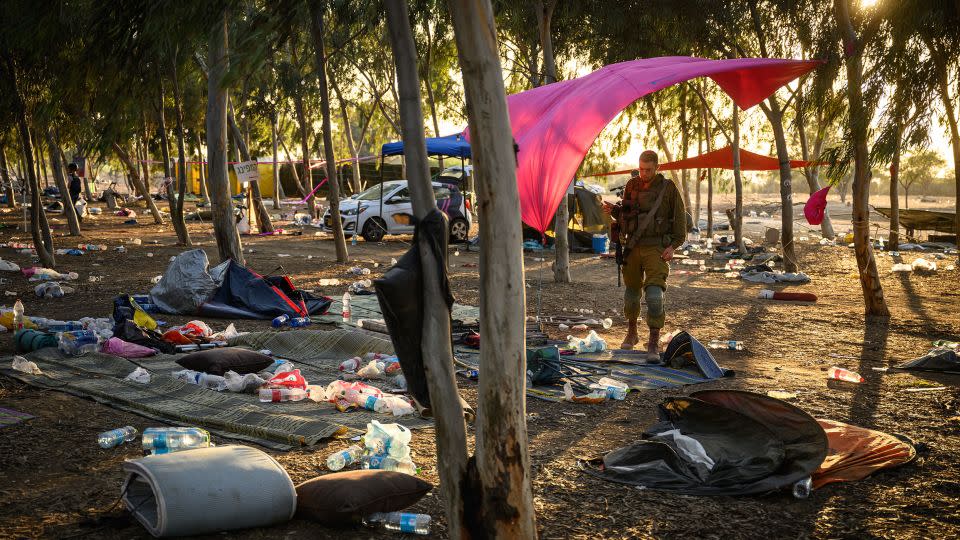
Away from the protests, teachers in US schools – especially those with ties to the region – are quietly facing their own challenges.
A Palestinian sixth-grade teacher in Alameda County, California, says she’s struggled to answer her students’ questions in a way that gives them a clear picture of what’s happening in the region. She asked CNN not to use her name out of fear of backlash for discussing such a divisive issue.
Her students know about her Palestinian heritage and noticed that she’s appeared distracted since the war started, she says.
“They could see how badly it affected me. And every morning I’d come in, they’d ask, ‘Is there any good news, anything happening? Are they stopping this war?’”
This week a student asked her how tensions between Israelis and Palestinians started, so she offered some historical context. She also read aloud to her students from a children’s book, “Baba, What Does My Name Mean?” by Palestinian American author Rifk Ebeid, which details the journey of a young Palestinian refugee who turns to her father for answers about her cultural heritage.
The teacher says the past few weeks have been emotionally tough on her. It’s been especially disheartening to see statements from school districts denouncing Hamas’ attacks on Israel with no mention of the suffering of Palestinians, she says.
“What about us Palestinians? It’s like they don’t even see us … they don’t even see us as human,” she says. “It’s been super hard going to work and trying to put on a fake face and trying to get through my lessons, trying to get through my day. Last week I went home early. I couldn’t do it anymore.”
Her teaching job that has been her passion for three years, she says, but the Israel-Hamas conflict has taken a toll.
“I’m not as enthusiastic as I used to be, which causes my students to not be as enthusiastic,” she says.
A teacher in Georgia says she’s asking students to discuss the war with their parents
CNN talked to four other teachers who also did not want to be named. They said they’ve avoided responding to questions about the war in class out of concern they may have students connected to both sides. They also fear students could record their comments and post them on social media, opening them to misinterpretation and threats.
One middle school teacher in an Atlanta suburb told CNN it’s been difficult to talk about the conflict with young kids. Some sixth-graders and seventh-graders have asked her what Hamas is and appeared confused when she explained it’s both a militant and political organization governing Gaza.
The teacher says she avoids talking about controversial subjects with her students and urges them to instead discuss the issues with their parents.
But she worries about the effect of the Israel-Hamas conflict and the Russia-Ukraine war on her young students.
“They are asking if we’re headed for World War III,” she says. “Between the pandemic and the threats of war, I really feel for these young kids. It’s tough.”
Gail Hoffer-Loibl, a Jewish mother of two who lives in upstate New York, says she’s glad her kids’ school did not talk to students about the war when it first broke out. She wanted her kids, ages 8 and 10, to learn about what’s happening from her, she says.
“I understand the sensitivity behind speaking about any international crisis in the classroom, and respect that the age of the students needs to be considered. I also recognize that reducing these events down to a way that is digestible for very young students is difficult,” she says.
“I was grateful that my kids got to learn about what was happening from me, allowing me to explain in my own words, and enabling my kids to ask me questions.”
Hoffer-Loibl says teachers shouldn’t shoulder the burden of counselling the children through war and conflict. Instead, students should be made aware of resources available to them, including school guidance counselors and off-campus mental health services, she says.
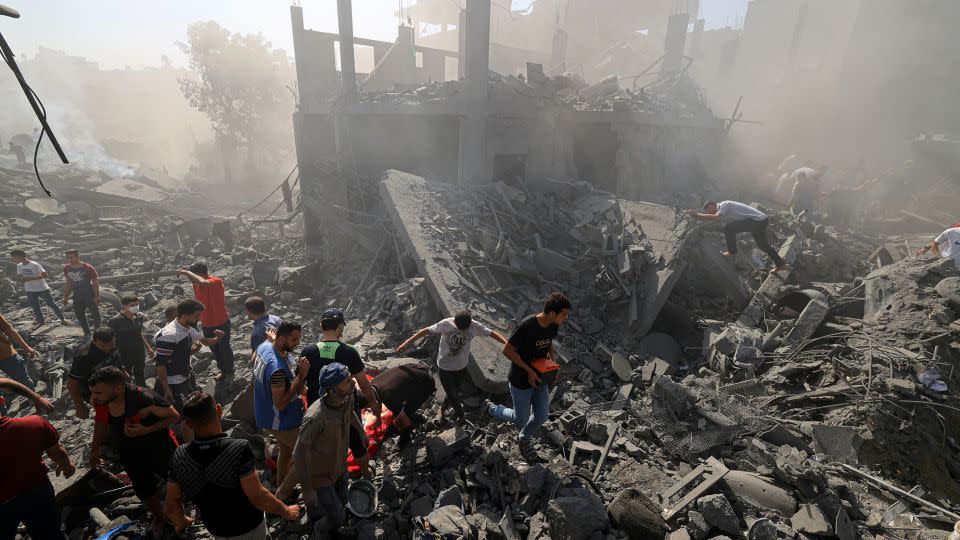
“A lot of people think this isn’t impacting kids outside of the Jewish, Arab and other communities with direct ties to the region,” she told CNN. “Regardless of their faith or ethnicity, war is scary, and our children need all the support they can get to process the violence they are seeing.
“This is a generation that has never known a world without school shootings, a generation that was left stranded during Covid. Both schools and families need to face this difficult time with compassion and understanding for our children.”
An Illinois school district spoke out after a child was killed in an attack linked to the war
A number of school districts across the nation have issued statements highlighting their support for those affected by the war. Some have singled out Israelis as the victims of the latest conflict, while others have opted not to issue any statements on the war.
Still others have issued vague condolences that are careful not to appear to take a side, angering some parents who feel educators should condemn terrorism.
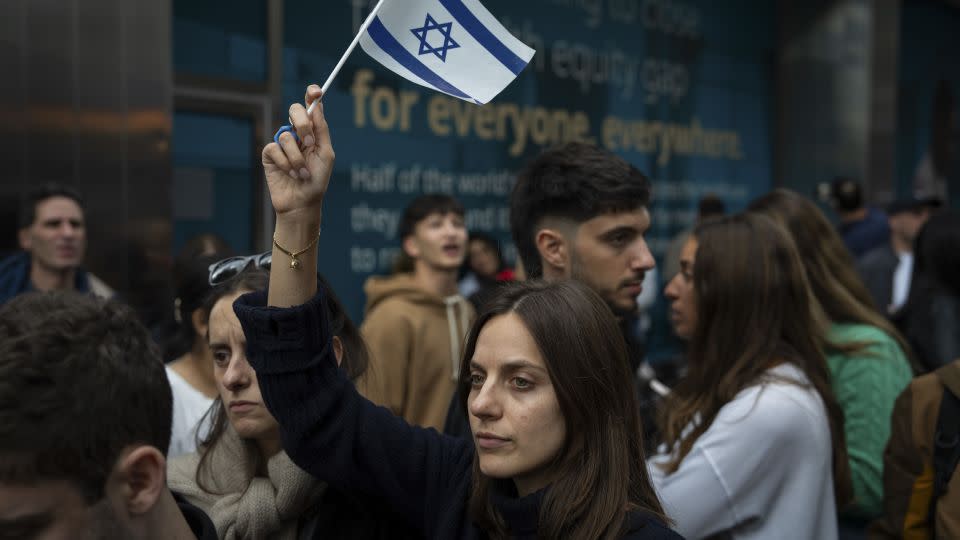
“There is no easy way to express the grief and heartache we feel over the loss of lives over the past week in the Middle East and the violence and trauma that continues to play out daily,” Georgia’s Fulton County Schools said in an October 12 statement on social media. “It may be hard for students to understand the scope of what is happening in the world, but when they come to school, we want them to know they are seen, heard, and loved.”
Some school districts have distributed educational materials to help teachers talk about the war and the history of the Israel-Palestinian conflict.
“These attacks have brought about a wave of fear, uncertainty, and distress within our communities. It is paramount that educators play a supportive role during this difficult time,” the New York State Education Department said in a statement earlier this month.
“Educators play a critical role in providing opportunities for open discussions about managing the trauma of the war in Israel and Palestine and helping students process their emotions and gain a deeper understanding of the complexities of this sensitive topic.”
In suburban Chicago, where a 6-year-old Palestinian-American boy was fatally stabbed two weeks ago in what authorities called a hate crime connected to the ongoing conflict, the Plainfield Community Consolidated School District offered grief counseling and said it’s keeping a close eye on students for signs of emotional distress.
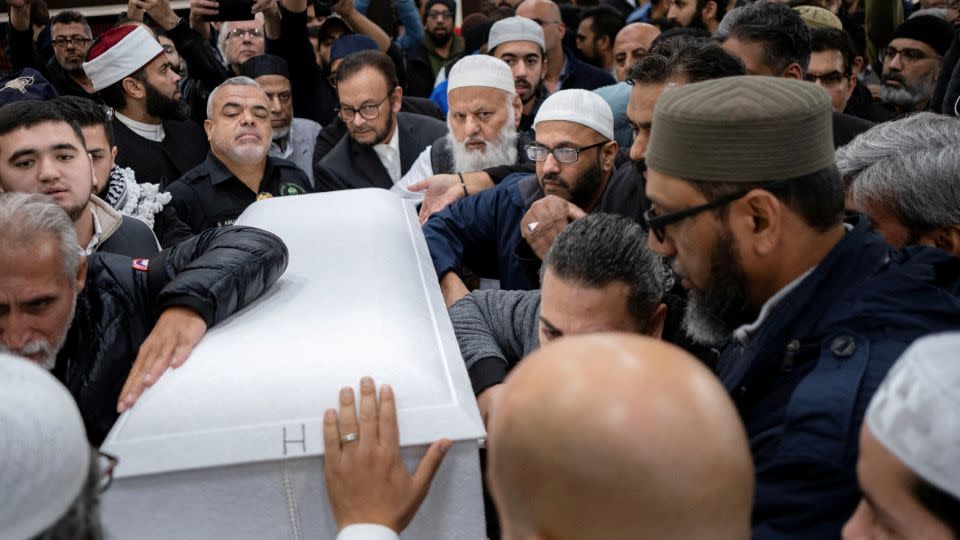
In a statement to CNN, Superintendent Glenn Wood said the district’s staff will continue to treat students with respect and seek an inclusive environment in classrooms.
“Emotions can run high in the community in times such as these,” Wood said. “While we attempt to focus on what goes on inside our schools, our students are very much impacted by what happens outside of the learning environment. … Bigotry and hate have no place in our schools.”
A Palestinian teacher says her students are asking a lot of ‘why’ questions
Ghadeer Soof Haddad has taught literature to high school juniors and seniors for 12 years in Gary, Indiana. The war broke out while her school district was on fall break, she says, but her students peppered her with questions about her Palestinian background when they returned.
She pulled out a map and showed them where her extended family members live – in the West Bank and Gaza.
“They asked a lot of why questions, like … ‘Why is this happening? Why has it been going on so long? Did anybody ever try to fix the situation?’ They were surprised that it’s been going on for this long,” she says.
Haddad says students also were stunned that so many children have been casualties of the war.
“Just knowing that there are kids their age going through this really got to them … just thinking, what would it be like if that were my family?” she says. Haddad says she’s received a lot of support from her fellow teachers and principal, who’ve all reached out to see how they can help.
But Haddad says it’s been a challenge trying to explain the war to students in an objective way.
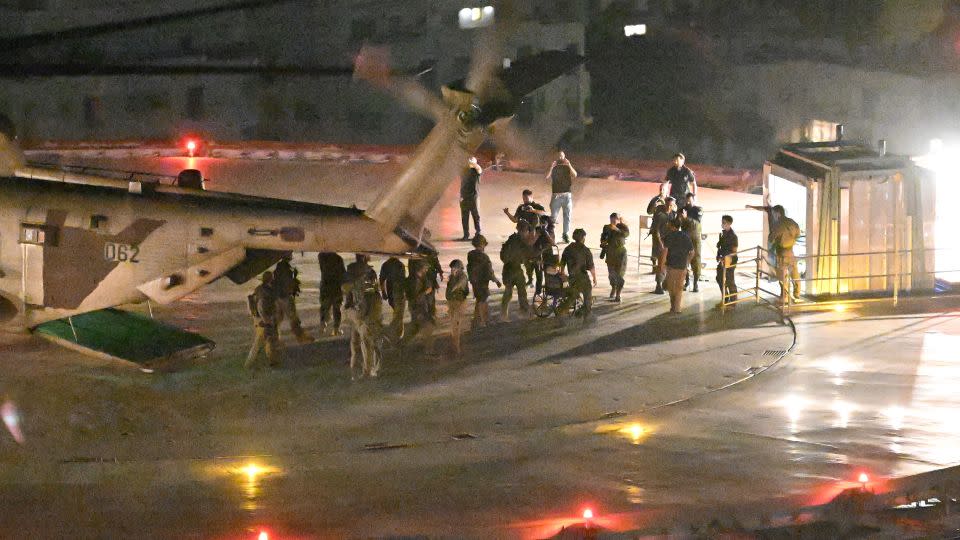
“Obviously being Palestinian, you come with some level of bias. I was trying to present the facts objectively and just answer their questions in a straightforward manner and keeping my bias out of it,” she says. “But they’re juniors and seniors, and I’ve taught some of them for years – so they could see through things.”
The three high school teachers CNN talked to say they’re encouraging their students, as young adults preparing to go out into the world, to do their own research into what’s happening in the Middle East.
Rosenberg, the New York City teacher, says her students have expressed a range of perspectives about the violence in Israel and Gaza. They have talked openly about their concerns, including antisemitism and Islamophobia, and have listened to each other’s points of view, she says.
In answering students’ questions, she says she tries to underscore the point that any time a civilian is hurt in a war, it’s an abomination.
“If we don’t have these conversations in class, where are kids going to do it?” she says. “Kids need to learn how to talk (to each other) about topics that they might not agree on – without ending friendships.”
Rosenberg says every raised hand in class brings her apprehension that the following question could be offensive to some students.
But so far that hasn’t happened, she says.
“I’m going to answer it (the question) in a way that’s authentic,” she says, “but also not in a way that makes certain kids feel that they cannot share how they’re feeling about it.”
For more CNN news and newsletters create an account at CNN.com

